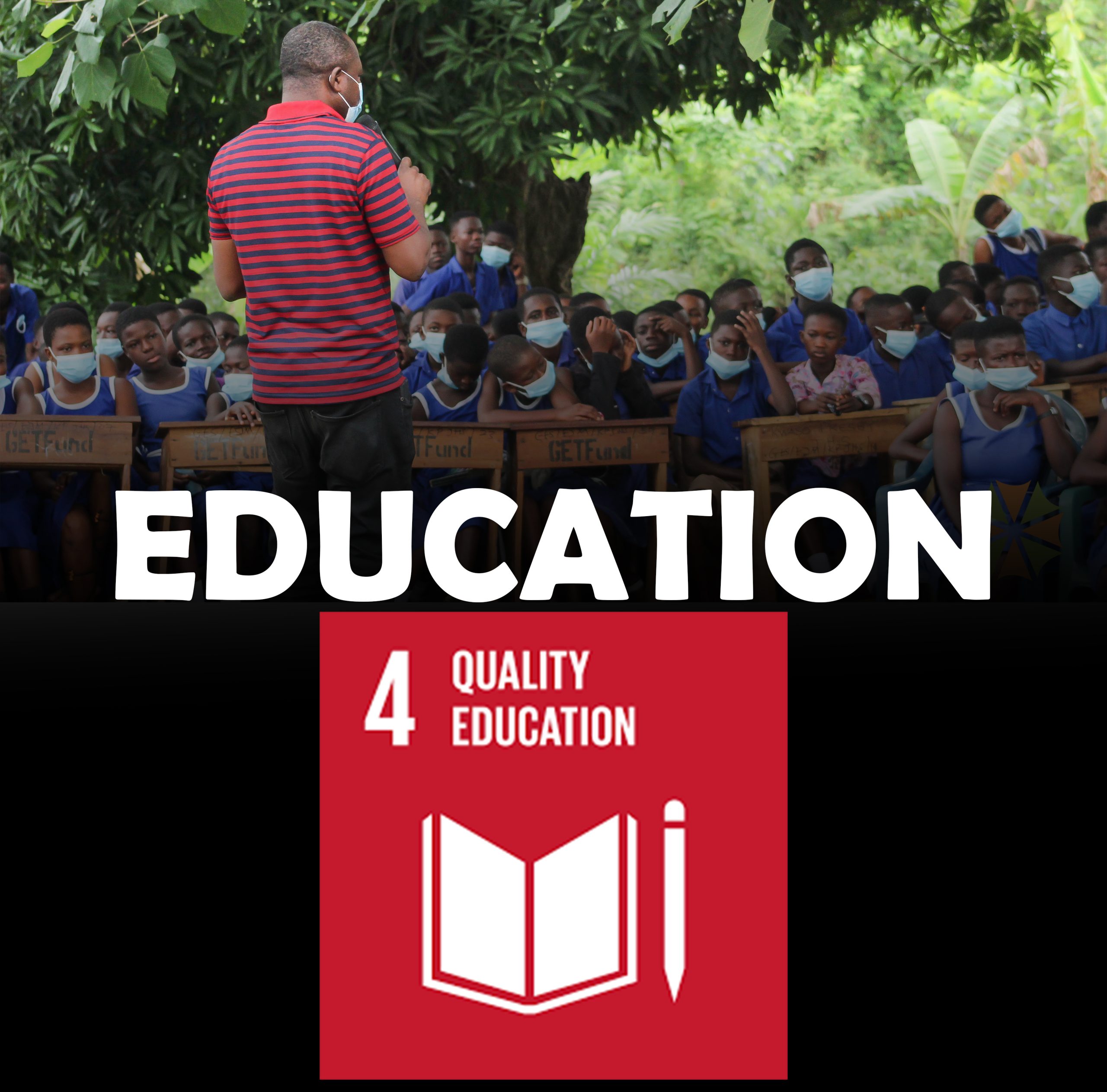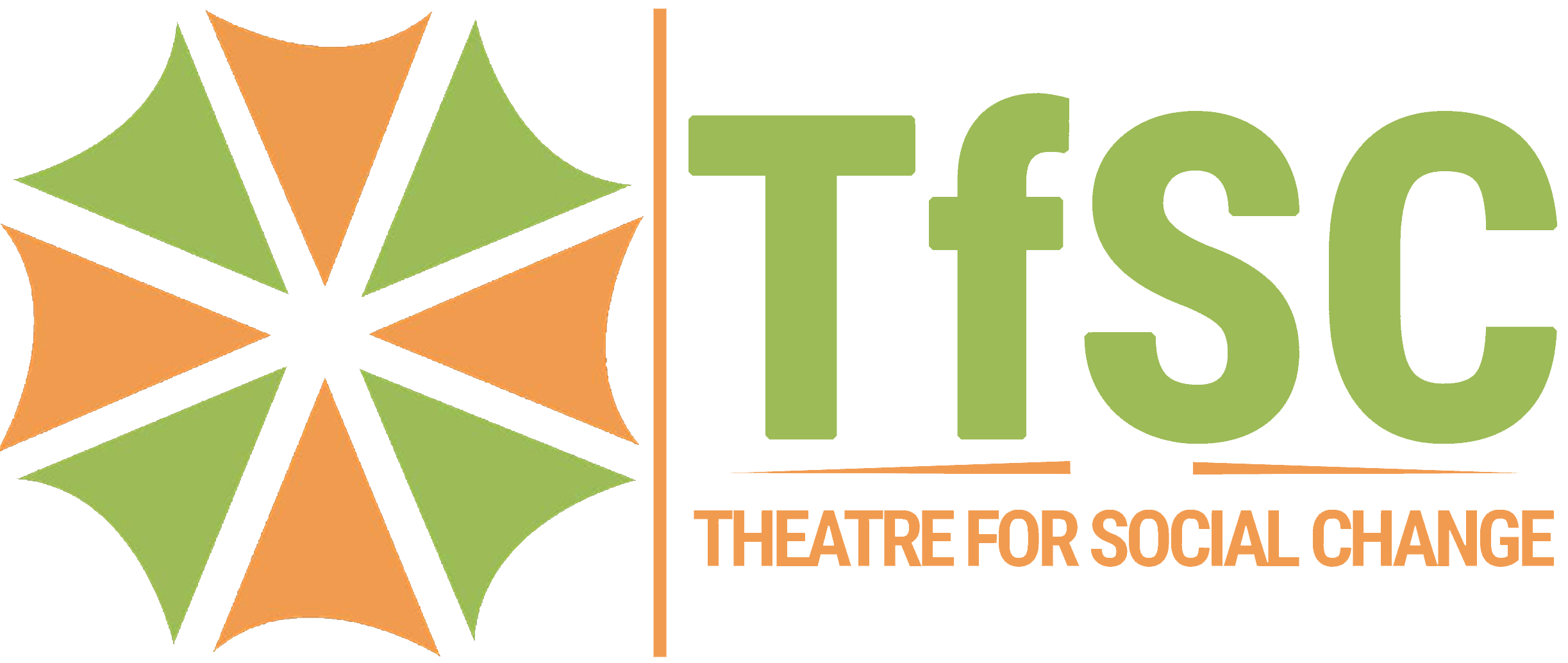EDUCATION

TfSC is deeply committed to forging impactful collaborations with communities and educational bodies. One of the pivotal challenges we’re determined to surmount is the low pupil enrolment and the acute shortage of teachers, particularly in remote regions of Ghana, including the northern territories. Here, complex socio-economic factors often hinder parents from prioritizing their children’s education. Moreover, many of these regions lack motivational and robust educational infrastructure, amplifying the need for intervention. With our strategic blueprint slated for the next eight years, TfSC aspires to revolutionize the educational landscape, aiming to impart quality education to a vast number of beneficiaries. This will not only uplift the in-school pupils/students but will also resonate positively with the out-of-school youth, ensuring they’re no longer sidelined.
Our Paramount Objectives Include:
- Community Empowerment: Championing community involvement, ensuring that every stakeholder feels integral to the process of educational reform, thereby driving local ownership and sustainability.
- Strategic Alliances: Forming synergistic partnerships with educational offices, aligning our efforts to foster an environment conducive to quality teaching and holistic learning.
- Tackling Enrolment & Staffing Hurdles: Addressing the dual challenge of increasing pupil enrolment and mitigating teacher shortages, especially in the more remote regions. Our approach combines both short-term immediate solutions and long-term systemic changes.
- Resource Mobilization: Actively garnering resources, both material and financial, for teaching and learning materials (TLMs). Moreover, we have invested in spearheading initiatives that uplift the overall school environment, ensuring it’s conducive to effective learning.
- Innovative Research & Training: Continuously investing in research initiatives to unearth novel methodologies that can enhance the quality of basic education in Ghana. Alongside this, we’re committed to hosting regular training sessions, equipping educators with modern techniques and skills, and keeping them abreast of global best practices.
By adopting this multi-faceted approach, TfSC is not just aiming to change statistics but to transform lives, shaping a brighter educational future for Ghana.
How To Do IT
TfSC recognizes the unique educational challenges that communities in remote areas face. Here is an expanded approach to how TfSC will tackle these:
- Community-Based Literacy & Numeracy Classes:
- Objective: Prepare out-of-school youths for reintroduction into the formal education system.
- Methods: Establish community learning centers where skilled educators deliver tailored classes. These centers will also serve as hubs for community education initiatives.
- Outcome: Enhanced literacy rates among out-of-school youths and a seamless transition to formal schools.
- Mother-Tongue Literacy Program:
- Objective: Foster foundational literacy skills in the native tongue to ensure comprehension and retention.
- Methods: Develop culturally relevant curriculum materials and hire educators fluent in local dialects. The program will last 10 months.
- Outcome: Improved comprehension and a deeper connection with the learning material for students.
- Oral English Program:
- Objective: Bridge the gap between mother-tongue instruction and English-medium education.
- Methods: Intensive 2-month programs focusing on basic English communication to ensure students can engage with the national curriculum.
- Outcome: Enhanced English language comprehension, facilitating easier entry into the formal school system.
- Transition to Formal Schools:
- Objective: Ensure graduates from the complementary education program (CEP) join formal schools.
- Methods: Collaborate with local schools to facilitate the enrolment process. Provide scholarships or financial support where needed.
- Outcome: Increased enrolment rates in formal schools.
- Monitoring & Tracking:
- Objective: Assess the efficiency of the transition process and identify areas of improvement.
- Methods: Establish a tracking system to monitor the academic progress of CEP graduates.
- Outcome: Insights into the effectiveness of the preparatory programs and adjustments made as needed.
- Research Initiatives:
- Objective: Continuously improve the basic education system in Ghana.
- Methods: Collaborate with educational institutions to conduct studies on current educational methodologies and their efficacy.
- Outcome: Evidence-based strategies to enhance basic education.
- Capacity Building Workshops:
- Objective: Equip teachers and community stakeholders with skills for effective community engagement.
- Methods: Regular training sessions that focus on modern teaching techniques, curriculum development, and fostering community relationships.
- Outcome: Empowered educators and community leaders capable of bringing about sustainable change in the education sector.
- Addressing Teacher Shortages:
- Objective: Fill teacher vacancies in remote areas to ensure consistent education delivery.
- Methods: Launch recruitment drives to hire local volunteers as educators. Offer incentive programs to retain these volunteers and provide them with training to ensure quality education.
- Outcome: Reduced teacher shortages in remote areas, leading to consistent and quality education for students.
By following this comprehensive approach, TfSC aims to bridge the education gap in remote regions of Ghana, ensuring every child has access to quality education, irrespective of their geographical location.
